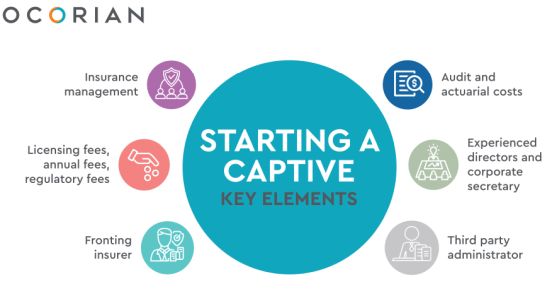In part two of this three-part series shining a spotlight on captive insurance companies, Managing Director - Bermuda, Alison Dyer identifies the key elements required to establish an effective captive.
Part one: Key benefits of establishing a captive insurance company
A properly designed and integrated captive solution can be a significant advantage to the captive owner and can become a profitable undertaking. Many options are available to tailor a captive to the owner's needs but optimisation of the captive may be constrained by factors related to its licence, including the type of business allowed, minimum capital and reserve requirements. This is a great example of why choosing the most suitable domicile and licence is important and we will approach this in part three of the series.
In order to establish a captive effectively, there are a number of key elements to consider which determine both its efficiency and potential profitability.

- Insurance management
The insurance manager operates the captive on behalf of the captive owner. Cost, relevant expertise and independence are factors in choosing an insurance manager.
- Audit and actuarial costs
The opinion of an approved auditor and in some cases an approved actuary is required as part of statutory reporting. Costs are generally comparable among firms of the same tier, and the captive will often use the captive owner's group auditors.
- Licensing fees, annual fees, regulatory fees
These vary in different domiciles, and can be structured very differently, making comparison challenging. Regulatory fees in Bermuda have been relatively static over the past 10 years.
- Directors, corporate secretary
The board of a captive should include local directors with relevant expertise and experience. The local directors enhance board diversification, introduce a wealth of local industry knowledge and support economic substance requirements.
A local corporate service provider with a good record of accomplishment in captives provides a registered office and helps to maintain regulatory compliance. They arrange board and statutory meetings and keep corporate records for the captive.
- Fronting, third party administrators
Sometimes a fronting insurer is required to issue insurance policies on behalf of the captive. Fronting insurers retain no risk contractually, and are typically traditional, licensed insurers based in the same jurisdiction as the captive owner.
Third party administrators (TPA) help with claim processing and other administrative tasks for the captive. The need for a TPA depends on the nature, scale and complexity of the insurance business written.
In part three of the series we examine why Bermuda is the world's leading domicile for captive insurance companies.
Captive solutions
Our team provide a full suite of administration and fiduciary services to the ILS and captive market from our Bermuda, Cayman and BVI offices, ensuring that all structures remain compliant with applicable regulations in each jurisdiction. We add value throughout the life cycle, from incorporation and licensing, to unwinding and voluntary liquidations when the structure ends its natural life - precision and technical expertise has been the hallmark of our service offerings to this important global industry.
Originally published 18 May 2020
The content of this article is intended to provide a general guide to the subject matter. Specialist advice should be sought about your specific circumstances.
